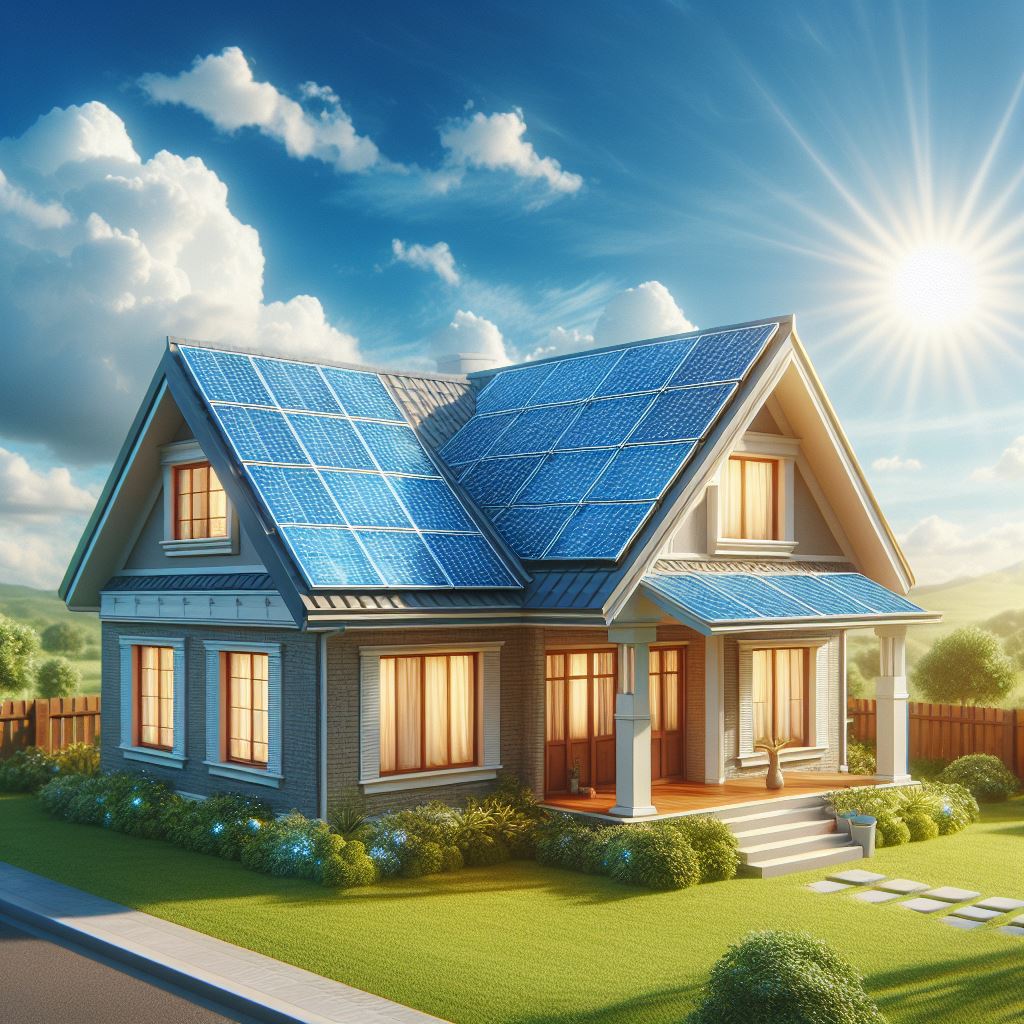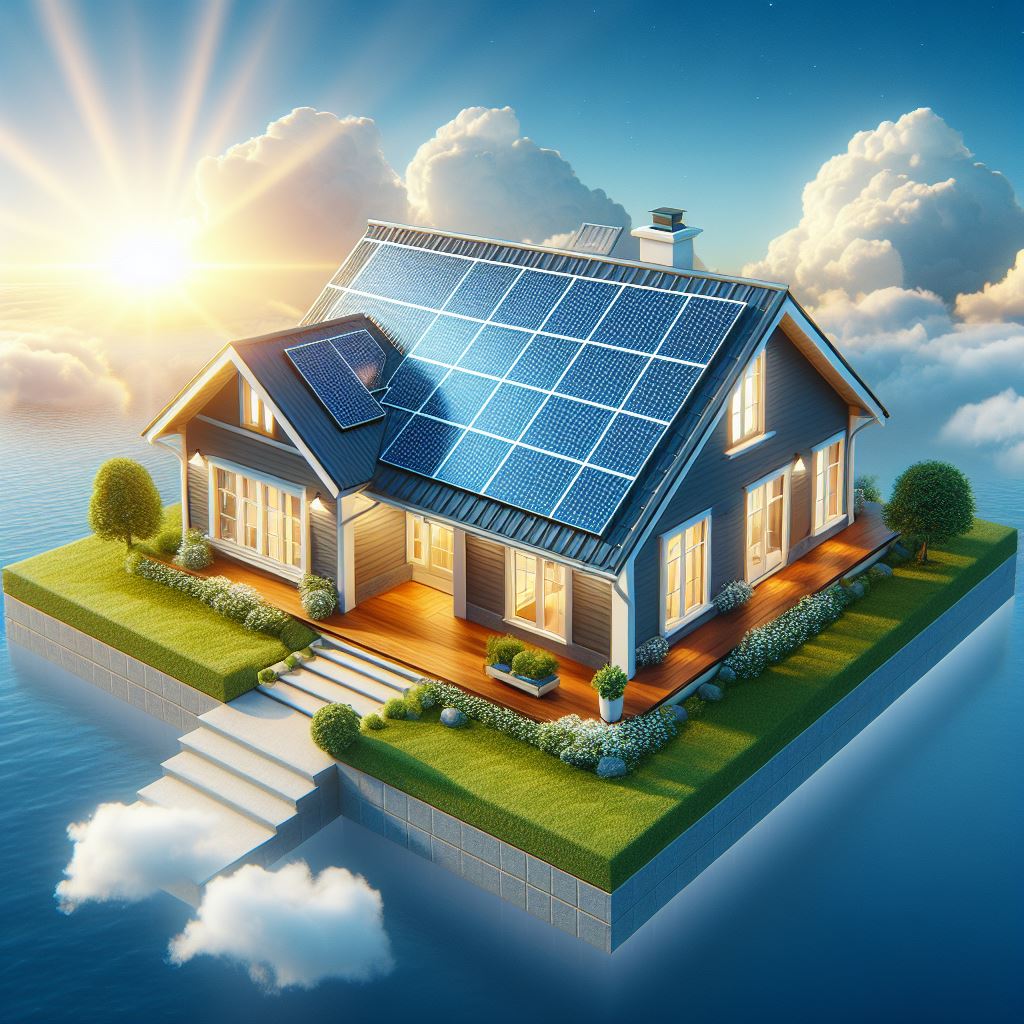Discover the ins and outs of determining the right How Much Solar Panel Power Do You Need for Your Home. A Comprehensive Guide. From assessing energy needs to calculating system size, this guide provides essential insights for making informed decisions.
Transitioning to solar power is not just an environmentally conscious decision but also a practical one for many homeowners looking to reduce their energy bills and carbon footprint. However, understanding how much solar panel power your home requires can seem complex. Fear not! In this detailed guide, we will break down the process step by step, empowering you to make informed decisions about your solar panel system.
Understanding Your Energy Needs:
To begin the journey towards solar power, it’s crucial to have a clear understanding of your household’s energy consumption patterns. Start by examining your monthly electricity bills to gauge your average energy usage. Consider factors such as the number of occupants in your home, the types of energy-intensive appliances you use, and your overall lifestyle habits that impact energy consumption. This initial assessment will serve as the foundation for determining your solar panel requirements.

Monthly Electricity Consumption and Recommended System Size
- Monthly Electricity Consumption: This indicates how much electricity your household typically uses in a month.
- Recommended System Size: These are the ideal system sizes based on your monthly consumption.
| Monthly Electricity Consumption (kWh) | Recommended System Size (kW) |
| 300 | 2.5 |
| 500 | 3.5 |
| 700 | 5 |
| 1400 | 10 |
| 2100 | 15 |
| 2900 | 20 |
Determining System Size Based on Appliance Usage
The number and types of appliances you use at home play a crucial role in determining the size of the system and the number of panels required. Although you may not use all appliances simultaneously, the system is designed to accommodate peak usage scenarios. Here’s a breakdown based on the number of appliances:
| Appliances | System Size (kW) | Fans | Lights | AC / Iron | Fridge | Water Pump / Washing Machine | LED TV |
| 5 kW | 5 | 5 | 10 | 1 / 1 | 1 | 0 / 1 | 1 |
| 10 kW | 10 | 10 | 15 | 2 / 1 | 1 | 1 / 1 | 2 |
| 15 kW | 15 | 20 | 30 | 3 / 1 | 2 | 1 / 1 | 3 |
| 20 kW | 20 | 20 | 30 | 5 / 1 | 4 | 2 / 2 | 4 |
Considering Property Area for Installation
The available space on your roof or ground also influences the number of solar panels you can install. Opting for high-efficiency panels is recommended as they generate more electricity while occupying less space. Here’s how property area affects system size:
| Property Area (Square Footage) | Maximum System Size (kW) |
| 1100 | 3 |
| 1150 | 5 |
| 2500 | 10 |
| 3600 | 15 |
| 5000 | 20 |

Determining Panel Requirements
The number of panels required depends on two main factors:
- Panel Efficiency: Higher efficiency panels produce more electricity per unit area.
- System’s Production Capacity: This dictates the electricity output per panel.
Here’s a breakdown of the panel requirements for different system sizes:
| System Size (kW) | 440 W Panel (Highest Efficiency) | 375 W Panel (Medium Efficiency) | 315 W Panel (Low Efficiency) |
| 2.5 | 6 | 7 | 8 |
| 3.5 | 8 | 10 | 12 |
| 5 | 12 | 14 | 16 |
| 10 | 24 | 27 | 32 |
| 15 | 36 | 40 | 47 |
| 20 | 48 | 55 | 65 |
Calculate Monthly Energy Consumption: Add up the units consumed over the past 12 months and divide by 12 to find the monthly average. Then, divide the monthly units by 30 to determine daily usage.
Example:
- Annual unit consumption: 12,000 units
- Monthly unit consumption: 12,000 / 12 = 1000 units/month
- Daily unit consumption: 1000 / 30 = 34 units/day
Estimate Solar System Size: With an average daily consumption of 34 units, you’d require approximately a 9kW solar system to fulfill your energy requirements. This estimation is based on the fact that a typical 1-kilowatt solar panel system generates about 4 units per day.
The size of the system varies depending on the wattage of the panels. Higher-wattage panels necessitate fewer panels, while lower-wattage panels call for a larger system size.
Calculating Solar Panel Capacity:
Once you’ve gained insight into your energy needs, the next step is to calculate the appropriate solar panel capacity for your home. Several key factors come into play during this calculation process:
Daily Sunlight Hours: The amount of sunlight your location receives daily directly affects the output of your solar panel system. Assess your area’s average daily sunlight hours to gauge how much solar energy you can harness.
Energy Efficiency Measures: Before investing in solar panels, consider implementing energy efficiency measures within your home. Simple steps such as upgrading to energy-efficient appliances, improving insulation, and practicing energy-saving habits can significantly reduce your overall energy demand, thus impacting the required size of your solar panel system.
System Efficiency: The efficiency of your solar panel system is influenced by various factors, including the quality of the panels, their tilt angle, shading from surrounding structures or trees, and regular maintenance. Take these factors into account when calculating the size of your solar panel array.
Peak Load Analysis: Identify the times of day when your home experiences peak electricity demand, such as evenings when multiple appliances are in use simultaneously. Understanding your peak load will help ensure that your solar panel system can meet your household’s energy needs during these high-demand periods.
Factors Influencing Solar Panel Size:
In addition to the calculation considerations mentioned above, several other factors can influence the size of the solar panel system needed for your home:
- Available Roof Space: Assess the available roof space on your property to determine how many solar panels can be installed. Larger roofs with unobstructed sunlight exposure can accommodate more panels, allowing for a higher capacity system.
- Local Regulations and Permits: Before proceeding with solar panel installation, familiarize yourself with local regulations and permit requirements governing solar energy systems in your area. Some municipalities may have restrictions on system size, placement, or aesthetic considerations that you’ll need to adhere to.
- Budget Considerations: While transitioning to solar power offers long-term financial benefits, it’s essential to consider your budget constraints when determining the size of your solar panel system. Balance the upfront costs of installation with the anticipated savings on your electricity bills over time to find a solution that fits your financial goals.
- Future Energy Needs: Anticipate any changes in your household’s energy consumption patterns, such as the addition of new appliances or home expansions, when sizing your solar panel system. Planning for future energy needs ensures that your solar investment remains viable and efficient in the long run.

Understanding Solar Panel Efficiency and Technologies:
Choosing the right solar panels is crucial for maximizing energy production and return on investment. Explore different solar panel technologies, including monocrystalline, polycrystalline, and thin-film panels, and understand how efficiency ratings impact performance. While monocrystalline panels generally offer higher efficiency, they may come at a higher cost, so weigh your options carefully based on your budget and energy goals.
| Pros | Cons |
| 1. Renewable Energy Source | 1. High Initial Cost |
| 2. Environmentally Friendly | 2. Intermittent Energy Production |
| 3. Reduces Electricity Bills | 3. Requires Sunlight Exposure |
| 4. Low Maintenance Requirements | 4. Space Requirements |
| 5. Long Lifespan | 5. Energy Storage Challenges |
| 6. Government Incentives and Tax Credits | 6. Impact of Weather Conditions |
| 7. Energy Independence | 7. Potential for Panel Degradation |
| 8. Increases Home Value | 8. Limited Lifetime Warranties |
| 9. Scalability | 9. Aesthetic Considerations |
Additional Considerations – Determining Solar Panel Quantity
Several factors can influence the number of solar panels necessary for a specific residence. These factors include the duration of peak sunlight, panel efficiency, and the maximum power output of each panel. For example, if you aim to install an 8-kilowatt (kW) solar system, the quantity of panels required hinges on the wattage of each panel.
Typically, for an 8kW system, approximately 16 to 18 panels with a 545-watt capacity each are needed. However, opting for lower-wattage panels, such as 400 watts, necessitates a greater number of panels to fulfill your energy requirements. In this scenario, with each panel rated at 400 watts, around 20 solar panels would be needed. The exact number of panels required may vary by 1-2 panels due to the aforementioned factors.

FAQs about Solar Panel Power Do You Need for Your Home
How do I determine my home’s energy consumption?
Assess your monthly electricity bills and consider factors like the number of occupants and energy-intensive appliances to estimate your energy needs accurately.
What is the average sunlight exposure in my area?
You can find average sunlight data for your location through online resources or consult with a solar energy provider for personalized information.
Can solar panels still be effective if my roof has shading?
While shading can impact solar panel efficiency, solutions such as microinverters or strategic panel placement can help mitigate its effects and optimize energy generation.
How many solar panels are typically needed for a household?
On average, a residence typically necessitates approximately 17 to 21 solar panels to sufficiently harness solar energy for its energy needs. Various crucial factors, including the geographical location, the size of the dwelling, and the specifications of the solar panels, contribute to determining the precise quantity required.
How many solar panels should I install for a 2,000-square-foot residence?
For a house covering 2,000 square feet, an estimated 16 to 21 solar panels would be needed to generate an adequate amount of electricity for regular consumption. This estimation assumes that the dwelling possesses a suitable south-facing roof that receives abundant sunlight throughout the day.
How long can a residence operate solely on solar power?
In the absence of air conditioning or electric heating systems being utilized, a standalone 10 kWh solar battery can sustain essential energy functions within a home for at least 24 hours. With prudent energy usage, this duration can be extended even further.
Conclusion:
Determining the appropriate solar panel capacity for your home is a significant step towards embracing renewable energy and reducing your environmental impact. By considering factors such as your energy needs, sunlight exposure, and budget constraints, you can confidently navigate the process of sizing your solar panel system. Remember to consult with solar energy professionals for personalized guidance and expertise, ensuring that your transition to solar power is both successful and sustainable for years to come.
Visit our Site:
Welcome to EG Power Ltd – your go-to destination for solar solutions. With over five years of experience in solar and renewable energy, we’re dedicated to providing the most cost-effective panels on the market.
We prioritize environmental sensitivity and offer personalized solutions to meet your needs. Join us in saving the planet – contact us today!
Phone: 0300 1819060
Email: info@egpowerltd.com
